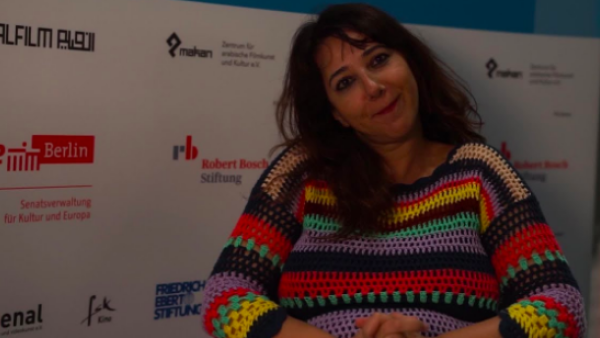BEIRUT: “There’s no cinema in Qobeiyat,” Eliane Raheb informed The Daily Star. “There was a cinema here in the 1950s. They knocked it down to build a road.” Raheb is a filmmaker and co-founder of Beirut DC, the independent film organization behind the film festival Ayyam Beirut al-Cinemaiyya and the Beirut Cinema Platform incubator for regional filmmakers.
Beirut DC has now partnered with three north Lebanon associations – the Tripoli Film Festival, Cultural Salon and Environmental Council – to organize a new cinema event in the Akkar village of Qobeiyat.
Edition zero of REEF: Rural Encounters on Environment and Film will be staged 15-16 September, with a two-program of outdoor projections (starting 7pm Saturday) and early morning Saturday hiking tours of the unspoilt Qammou’a region, about 40 kms from Qobeiyat.
The event’s main venue is the mill of Moussa Samaha, a 150-year-old wheat processing facility that’s been recently renovated as a cultural venue – REEF being its debut event. It will exhibit a selection of photos by Rodrigue Zahr, which capture scenes from rural life around the country.
A selection of six shorts will be projected in front of the mill. The programme includes work by some of the country’s great film talents, all shot in rural locations around Lebanon.
In Elie Khalife’s much-loved 1998 short “Merci Natex,” Fares and Salma are accustomed to a simple life in their northern village. Their lives change forever when they win a contest and an enormous wooden crate arrives at their house.
Mounia Akl’s topical fiction “Submarine,” which debuted at Cannes in 2016, follows a dystopic day in the life of Hala (Yumna Marwan), a young woman who refuses to be evacuated from the garbage crisis that has made the country unlivable. Saj will be made on site, from fresh, locally grown ingredients.
Raheb hopes REEF’s zero edition will mark the start of a long-term cultural institution. “The idea for next year’s first edition is to enlarge REEF to a four-day event, projecting films that depict rural life,” she told The Daily Star. “That’s the object, to highlight the value of living in the country as well as the problems unique to people who live in the country.”
The Tripoli festival is lending technical support – projector, sound equipment, etc. – Beirut DC is providing the films and artistic direction.
“In the future we’d like to have filmmaking workshops for the people here,” she said. “It may not be feasible to operate a cinema here, but we’d certainly like to develop a cineclub.
“Another object of the festival is to bring Beirutis north. This is a spectacular region but people from outside Akkar seldom come.” Raheb said the price of participating in the festival will be modest. Admission and bus fare from Qobeiyat to Qammou’a will be free. Meals will set you back £20,000. Several villas have rooms available for those who want to stay Saturday night, going for $50.
Sunday promises to be an eye-opener for anyone interested in Lebanon’s diversity of microclimates. The festival will tour the countryside highlighting an array of flora – not only cedars, but Persian junipers, Greek junipers, Cilician fir – which thrive nowhere else in the country.








